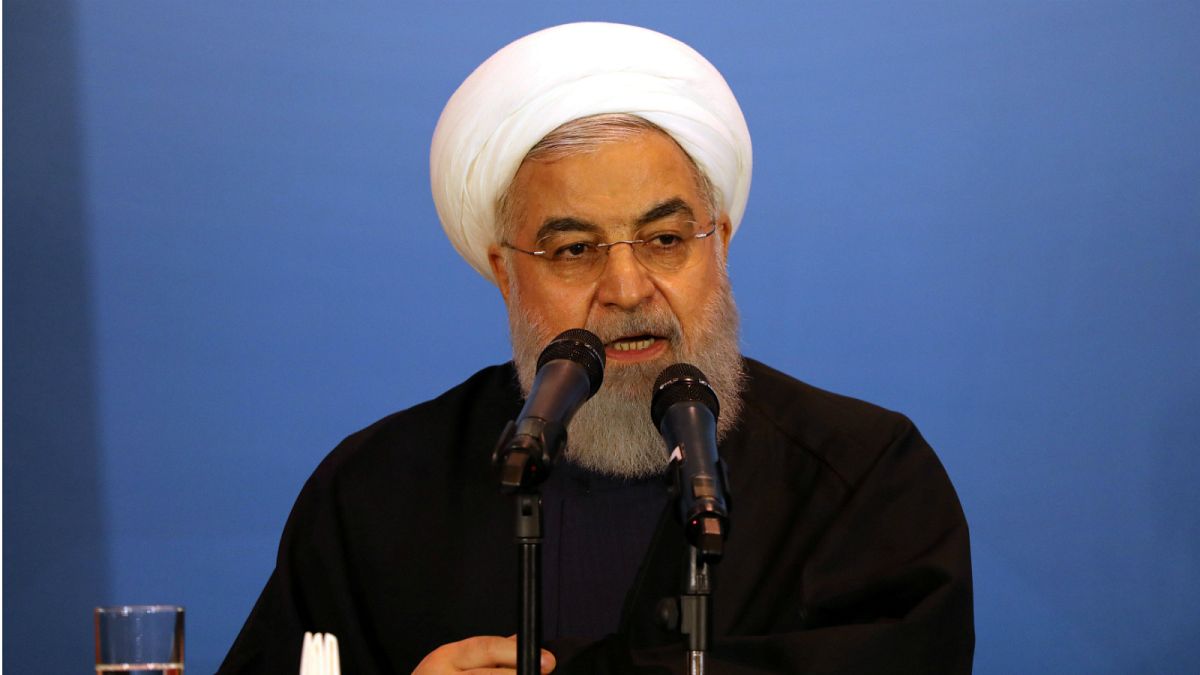Iran has announced that it will cease complying with several parts of the landmark nuclear deal, with a threat to withdraw further. But what commitments are to be dropped and why is this important?
Iran has said that it plans to cease "some commitments" on its nuclear deal that was agreed in 2015 alongside signatories from the US, the UK, France, Germany, China and Russia.
The deal, known formally as the Joint Comprehensive Plan of Action (JCPOA), was the result of almost two years of tense negotiations between world powers, and was formulated to curb Iran's ability to make nuclear weapons.
In simple terms, Iran agreed to a number of restrictions placed on its nuclear programme, which would prevent the creation of nuclear-grade weapons, but would still be able to power the nation with nuclear energy.
Debilitating economic sanctions were lifted in return, unfreezing billions of dollars of assets and giving Iran access to international oil trade.
But why has Iran now announced that it will halt some of these commitments, and why is this important?
Why is Iran doing this?
Iran's announcement on Wednesday came exactly one year after the US pulled out of the agreed deal, which led to a reintroduction of economic sanctions.
These sanctions led to devastating effects on Iran as the economy was hit, inflation quadrupled, trade was affected and civilians took part in widespread protests.
A joint project from the UK, France and Germany sought to find a workaround by launching INSTEX, a mechanism that allows EU companies to bypass the US dollar when trading with Iran.
- READ MORE: Why is Iran protesting over a currency drop?
- READ MORE: EU nations launch mechanism to trade with Iran
But in recent weeks, pressure from the US has grown more intense.
Just last month, the US further restricted Iran's oil revenue by ending exemptions to sanctions.
It also designated the country's Islamic Revolutionary Guard Corps — an elite military faction — a terrorist organisation.
On Sunday, the US announced it had sent a joint aircraft carrier and bomber task force to the Middle East in response to "clear indications" that Iran was planning to carry out attacks on American troops elsewhere in the region.
The acting defence secretary of the US Central Command, Pat Shanahan, said the move was a "prudent repositioning of assets" in response to a "credible threat" by Iran.
Following consistent US pressure, Iranian Foreign Minister Javad Zarif said on Wednesday that the country's decision to reduce its commitments to the deal had been made "after a year of patience", adding that the US had made the agreement "impossible to continue".
He noted: "Our action is within the terms of JCPOA".
What commitments is Iran pulling away from?
Iranian President Hassan Rouhani has said that Iran would begin, on Wednesday, to retain its stockpiles of excess enriched uranium and heavy water instead of selling it to other nations, reversing two commitments in the deal.
He further requested that the remaining signatories on the deal keep its promises to protect Iran's oil and banking industries, which have been crippled by the sanctions put in place by the US.
Giving the signatories an ultimatum, Rouhani said he would allow for 60 days to renegotiate a deal, or face further withdrawal.
This would include Iran resuming its manufacturing of enriched uranium, he said.
What is enriched uranium and heavy water, and what does the current deal stipulate?
Enriched uranium
Only a very specific type of uranium — uranium 235 — can be used for nuclear energy or weapons, and this requires a process of extraction.
The uranium 235 is isolated by taking advantage of uraniums' differing weights by using centrifuges — the product of which is enriched uranium.
In the deal, Iran agreed to phase out a large number of its centrifuges and reduce its stockpile to under 300 kg of up to 3.67% of enriched uranium.
Any excess among the stockpiles would sold internationally.
Iran also agreed to limit the enrichment process to its Natanz Enrichment Facility, and turn its Fordow facility into a nuclear, physics and technology centre.
Heavy water
A heavier version of regular water, heavy water gets its name from the weighting of the molecules it consists of.
Heavy water can be used in nuclear reactors as a moderator, but it can also be used to create plutonium, which, in turn, can also be used to create a nuclear weapon.
As with enriched uranium, Iran agreed to limit stockpiles of heavy water and sell any excess on the international market.
The deal also stipulated that Iran would redesign a water research reactor in Arak based on an agreed design, and would rely on light water research in the future.
It then agreed that Iran would not use the redesigned water reactor in Arak to try and manufacture plutonium.
